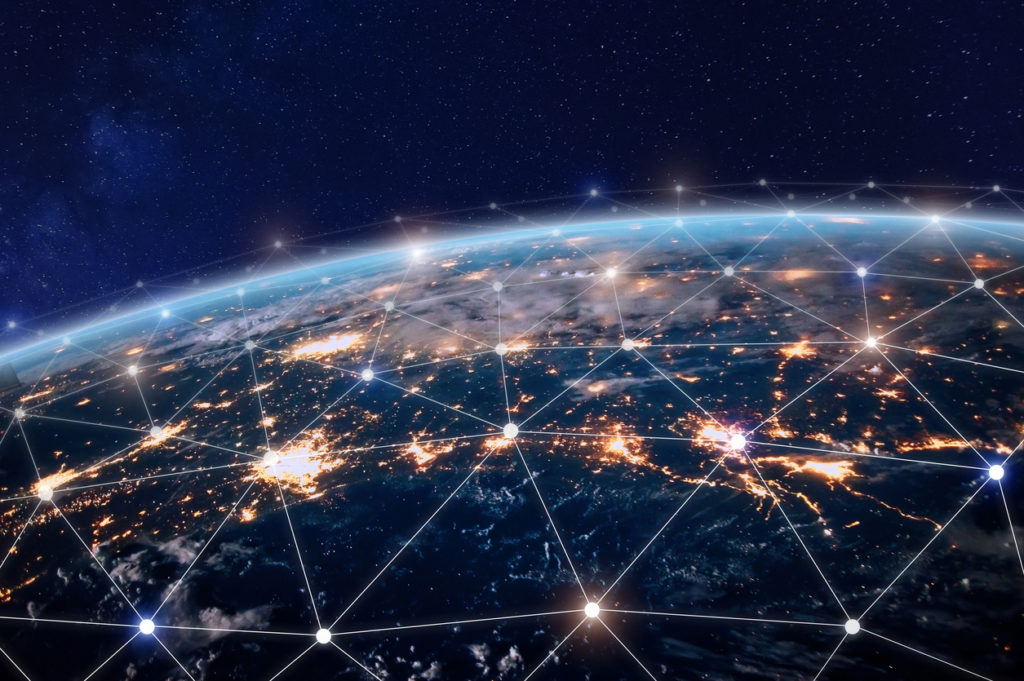Though I certainly could have benefitted from having a mentor in my younger years, it was nowhere on my radar – especially when I was in high school. I didn’t know it was an option. That’s why I was a little surprised when an opportunity with the Anchorage School District was pitched to me last year to be a mentor for a student in the district’s Gifted Mentorship Program. That’s when I met Michael, a junior in high school with a 4.0 GPA who is interested in pursuing an engineering degree in college. Admittedly, when I first heard about the opportunity, two of my initial thoughts were, “where do I start?” and “am I cut out to be a mentor?”
I quickly learned that being a mentor is a challenge, even more so during the COVID-19 pandemic. Normally, the mentors would get together to chat and exchange ideas about how to best-serve the students, but to stay COVID-safe, that wasn’t an option this time around. I had to start from scratch to design a module that would enable Michael to experience a wide variety of engineering disciplines. Though I may be well-versed in some aspects of engineering, I’m not an expert in many others. Luckily, I work at GCI where we have access to some of the brightest engineering minds in the state, if not the world. Through our time together, Michael had the chance to speak to a whole host of experts from across the company, learning about things like Radio Frequency (RF) engineering, electrical engineering, fiber optics and new technology, automation and controls, and more.
The best part? We were able to put that knowledge into practice doing one of the things that GCI does best – satellites. One hands-on project Michael took on this winter was at a facility near Ted Stevens Anchorage International Airport, doing the seemingly simple task of pointing a satellite dish at a satellite in space. I’ll let you in on a little secret, though, pointing a dish at a satellite more than 22,000 miles away is a pretty complex process – and there’s definitely some schoolwork involved. First, you have to determine exactly where you are. Then, you determine the azimuth, elevation, and identify obstructions like trees or buildings to figure out exactly where you need to point your dish.

The New Space Race: A Q&A on LEOs
Once the schoolwork is complete and the measurements are double checked, Michael adjusted the dish by hand to the predetermined position. Using tools like a 24-inch wrench and an inclinometer, we spent four hours in the cold, blowing snow to point the dish and find the satellite. Michael has a curious mind, and as we were out in the elements – experiencing much of what GCI technicians do in the field – he was continually asking questions like, “Why don’t you do things this way?” or “Why do you use this particular tool?” All are valuable questions and learning experiences as he explores the field of engineering. And Michael came through with flying colors. He took the measurements, did the math, turned the wrenches and found that satellite, tens of thousands of miles away. That’s quite an achievement for a high school junior.
Going back to my days as a student, it’s safe to say that I found certain aspects of school to be a challenge. I’ve dealt with dyslexia since childhood, so I’ve always been more hands-on oriented. I worked hard and overcame those challenges as I made my way through my years in the Anchorage School District and again though college at the University of Alaska Anchorage. And I think that struggle, and eventual academic success, played a significant role in preparing me for my professional career at GCI and to be a mentor. I’ve held jobs at nearly every level of the company as I worked my way through the ranks. From a tower climber, feeling the pain of 40-degrees-below-zero temperatures, to where I am today, as Vice President of Engineering & Operations for the GCI Business Engineering & Operations Service Delivery group.
Working with Michael and the Anchorage School District’s Gifted Mentorship Program has been an extremely rewarding experience and I can’t wait to see where the future takes him. I only hope that he got as much out of the experience as I did. After seeing Michael’s growth and seeing first-hand the positive impact I can have on students’ lives, I genuinely wish I’d known the importance of mentorship when my oldest child was in high school. But, thankfully, this experience has given me the opportunity to help my youngest seek mentorship as he approaches adulthood and explores all the different paths forward in life. It’s an experience I would 100% sign up for again and I would urge the many others like myself, who may not consider themselves a likely candidate to mentor local youth, to take the leap and help guide the next generation of Alaska’s professional workforce.